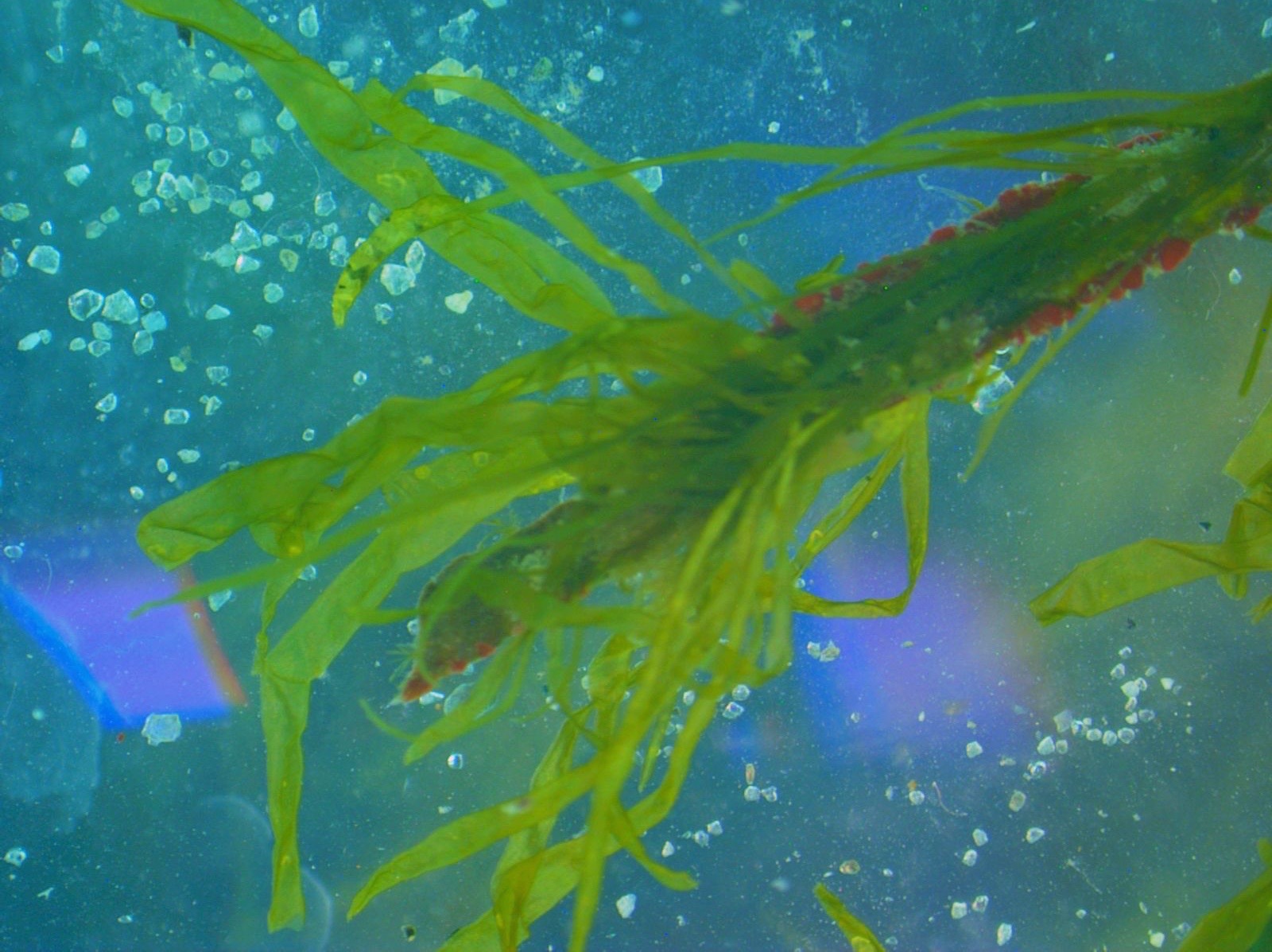By Valerie Perini
Submerged aquatic vegetation such as eelgrass provide important habitat and other ecosystem services in coastal environments. These plants are often colonized by epiphytic algae, which grows directly on the eelgrass, during part or all of their growing season, with variable impacts on the health of the eelgrass and the surrounding environment. In an effort to characterize a local and particularly understudied eelgrass epiphyte, a team of MSC undergraduate and graduate students – working with Associate Professor Matt Bracken (now based at the University of California at Irvine) – investigated the impact of key environmental variables on the growth and life cycle of the golden alga, Phaeosaccion collinsii.
In the study, recently published in the journal Botanica Marina, researchers collected macro and microscopic samples of the epiphytic alga from the blades of eelgrass, while monitoring environmental conditions including water temperature and nutrient levels during the P. collinsii growing season, over two years, at a local eelgrass bed in Nahant, Massachusetts. Results suggest that the growth and life cycle of this seasonal alga is strongly driven by temperature, with a narrower optimal temperature range for growth and reproduction that suggested in previous studies.
Additionally, winter storms during the study period allowed the researchers to observe how physical disturbance impacted integrity of eelgrass beds and in turn the P. collinsii population. This study provides the first in situ information on how environmental conditions impact the growth and development of this unique epiphytic golden alga.

